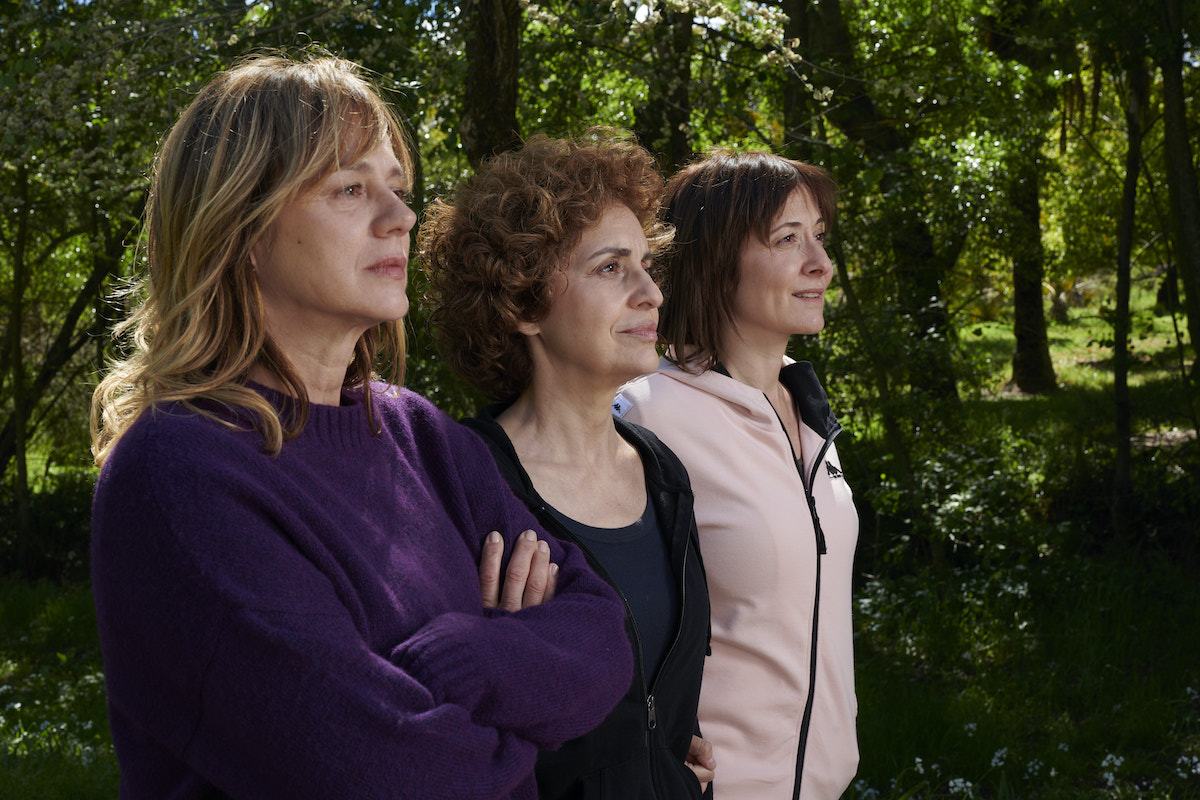Elsa (Emma Suárez), Julia (Adriana Ozores) and Amelia (Nathalie Poza) are three old friends with very different outlooks on life. Elsa is something of a man-eater who has just turned 50 and is resisting the realisation that her sex appeal isn’t going to last forever. Julia and Amelia have already passed that milestone and are coming to terms with similar age-related problems in starkly different ways; the former is a jaded schoolteacher in a loveless marriage who has been eaten up by bitterness, while the latter is a hopeless romantic who has so much love to give but can’t seem to find anyone to reciprocate – not even herself.
These three contrasting personalities and the volatile relationship between them form the entirety of the intrigue upon which The Invisibles is built. The title refers to their newly acquired status of unwilling wallflowers in the eyes of both the men they despise and desire at the same time and the society that sems to have no place for them. Approaching this existential crisis, the threesome meet every Thursday morning to take a turn around the local park, vent their insecurities and, on more than one occasion, mercilessly skewer those of their friends. If this is a form of therapy, it’s quite an avantgarde one.
That premise might not sound too riveting to the outside observer, but it’s a testament to the skill of Gracia Querejeta and Santos Mercero’s tightly worded script that the film grips from the get-go and doesn’t relinquish that grasp for the duration. It’s a masterstroke from Querejeta to stage the action in a park, as well; by portraying her protagonists in constant motion, she can inject a mite of dynamism into a setup that could have risked stagnation in a café or other setting, while also hinting at the ineffectual progress that the three appear to be making as they simply do laps of the same space.
The three actresses deserve immense credit, as well. All three take on the mantle of their characters with naturality, grace and, above all, believability. Even when exhibiting their worst traits, they imbue their characters with such an honesty and integrity that it’s impossible not to see their point of view. Each of the women has her own tragic flaw: for Elsa, it appears to be vanity; for Julia, it’s cynicism; and for Amelia it’s a complete lack of self-worth. Nonetheless, those imperfections are what make the characters human and what leave us feeling like we truly know them at the end of the film’s runtime. For one that’s less than an hour and a half in length, that’s quite a remarkable feat.
In the age of Marvel blockbusters and #MeToo movements, Invisibles is a timely and highly relevant breath of fresh air. With a proficient script and three impeccable actors, Quereta shows what can be achieved on a shoestring budget and brings to the fore a sector of society that is vastly underrepresented on the silver screen: the 50-something female. The end result is a constantly engaging and endlessly intriguing piece of cinema that won’t upend your universe at the final curtain, but might just give plenty of pause for thought. Understated, nuanced and honest, The Invisibles deserve to be seen by all.
